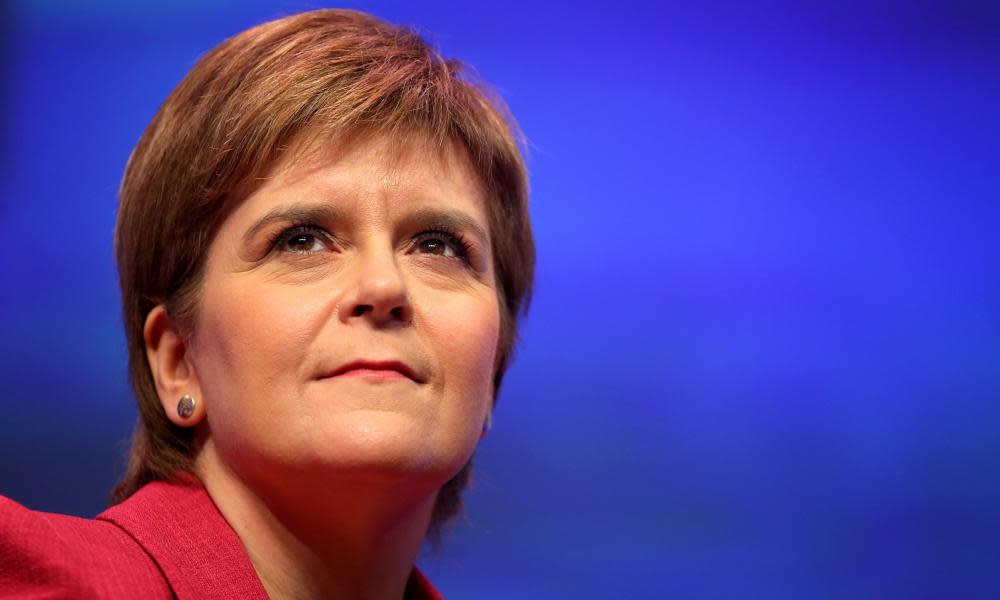Sturgeon accuses UK ministers of threat to veto Scottish powers

Nicola Sturgeon has accused UK ministers of threatening to veto Scottish policy-making as their talks over Brexit reached a critical stage.
Ministers from the Scottish and Welsh assemblies are close to a final deal with the UK government over their new powers after Brexit, with time running out before the House of Lords votes on a key clause affecting these powers in mid-March.
Officials in the Cabinet Office are preparing for talks on the proposed deal next month. They will be chaired by Theresa May and involve Sturgeon and her Welsh counterpart Carwyn Jones.
The prime minister is understood to want firm agreements from both first ministers before she flies to the next European council meeting later in March.
In a further sign of the urgency of this final round of talks, civil servants in all three governments are also trying to clear diaries for a further meeting of officials next week, to work on the remaining areas of disagreement.
Ministers from all three governments said they had a constructive meeting in London on Thursday morning. Scottish ministers say Whitehall has now agreed to automatically transfer powers in 86 areas to Edinburgh when Brexit takes place.
Sturgeon told MSPs at Holyrood that a final agreement is being held up by a bitter dispute over the remaining EU policy areas, which are currently overseen by the Scottish parliament and over which UK ministers want to retain a final say.
Michael Russell, Scotland’s Brexit minister, said the UK wants to exercise a veto over 25 major policy areas thought to cover farming, fisheries, food safety and the environment, which the UK government want to see covered by UK-wide common frameworks.
Sturgeon said: “What is proposed would not just give the UK government oversight of this parliament and government but, in matters that are devolved to this parliament, effectively give it powers of imposition or veto.
“I do not think that that is acceptable and the government of Wales does not believe it to be acceptable. That is why there must be further movement from the UK government if we are going to reach the agreement that I hope we can reach.”
UK government sources implied that Sturgeon was misrepresenting Downing Street’s position. One source confirmed UK ministers want UK-wide agreement in some of the contested areas. But he said the UK government was only asking the devolved administrations to accept that policies now in place for these areas under EU law remained exactly the same across the UK until a common framework could be agreed.
The UK ministerial team, led by Cabinet Office minister David Lidington, is adamant they must consider the collective interests of the UK, officials said.
UK ministers have also warned that different policies in different parts of the UK, for example on food safety or labelling, could damage overseas trade because foreign customers would object to imported goods being made to different standards.
The Welsh government said it was hopeful of a deal. “While there is no agreement as yet, all three governments share the objective of finding amendments which would enable the national assembly [in Cardiff] and the Scottish parliament to give legislative consent to the bill,” a spokeswoman said. “We are hopeful that agreement can be reached and will be working hard to this end over the coming weeks.”

 Yahoo News
Yahoo News 
